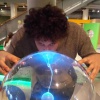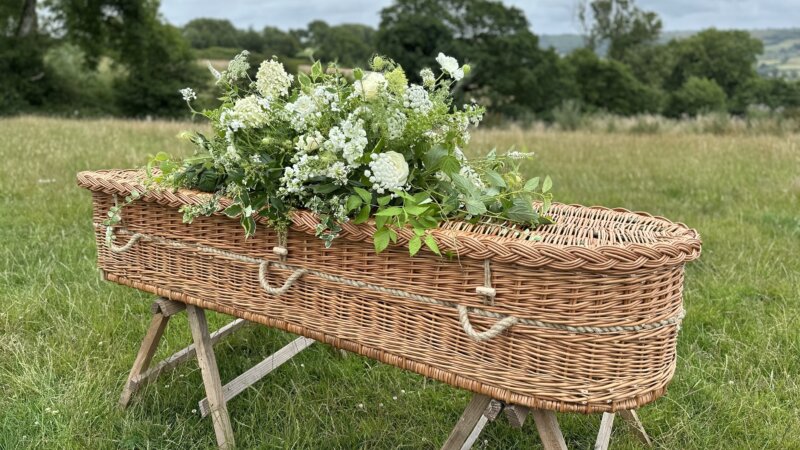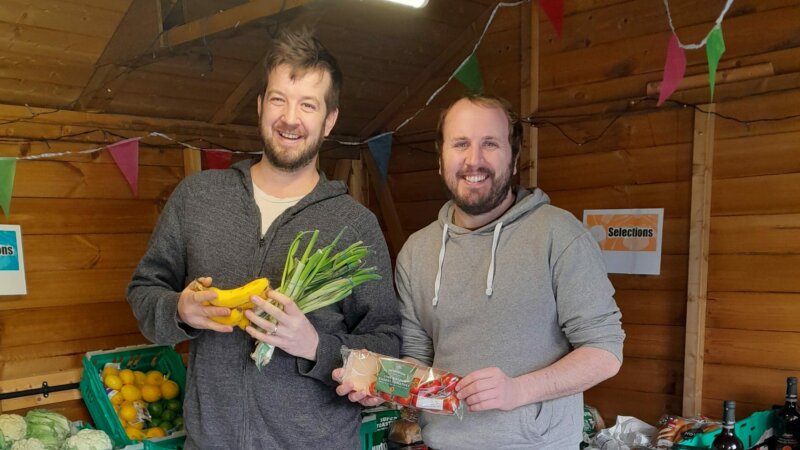Polar Bear: In conversation with drummer Seb Rochford
Polar Bear are a contemporary experimental jazz band based in London. With four albums under their belt, including the critically acclaimed Held on the Tips of Fingers and Peepers, they are now poised to release their fifth, In Each and Every One, next month on The Leaf Label. Loosely associated with the F-IRE Collective and with former punk-jazz outfit Acoustic Ladyland, Polar Bear are one of the freshest and most challenging bands in the UK today. I spoke to drummer, songwriter, producer and all-round talent Seb Rochford, who was taking a break in the US before the band’s upcoming UK tour.
What are you up to at the minute?
I’m just in the desert. I’ve been doing a bit of editing on some Polar Bear stuff with this singer. I’ve borrowed a drum kit from someone as well so I’ve been practising a bit. But mainly just been walking around in the desert. Just me and my girlfriend.
The new album is out in March. Tell me a bit about the writing and recording. I know with Peepers you recorded everything very quickly.
I think the recording was actually shorter than Peepers. We did three days instead of four days, but we rehearsed a lot more before, and I spent a lot longer doing stuff after, putting the album together.
What sort of techniques were you using this time around?
It was kind of the opposite of what we did last time. With the last album there were no headphones and we were all in the same room. But this time we used headphones and everyone was in a separate room so I had complete control over the sound. I put the drums through a 70s distortion pedal, the toms and bass drum through some effects. And then I gave the guy Sonny, who was recording it, his own channel and said to him he could do whatever he wanted on it, but I wasn’t allowed to hear it until afterwards. So when I got back to my house it was a surprise.
Did you write scores for all the songs or were they memorised by the band during rehearsals?
Yeah I write parts out for everyone, apart from John [electronics]. Sometimes I just communicate to John what I want. For one track I made a little demo on my computer and sent him the sound to give him the idea. I did try that once with a band – recording the tune that I’d written and asking them to learn it by ear – but they all just wrote parts out for it. We just adapt as we rehearse – play around with it and see how it goes.
John played guitar on Peepers, but I didn’t notice any on the new album. Was that a joint decision, for him to focus on electronics?
It was something we both thought of at the same time actually. So it worked out well.
Well it is his specialist subject. That and the mandolin. One thing I always notice about your playing on record is that it’s really understated. Are you conscious of not overproducing the drums and pushing yourself too high in the mix?
I’ve never thought about that. I just mix it to what I hear, I guess. Quite a lot of time with Polar Bear the drums are the last thing I’m thinking about. With this album, because of the electronics, I felt like I needed to pare my stuff down, so me and John were creating one rhythm together. So I think some of my parts are sparser. I think with my own band I probably play less intense than if I’m playing in someone else’s band, like Shabaka’s band [Sons of Kemet].
I was going to say that actually – that your playing on the Sons of Kemet album Burn is quite all-out. Is it nice to have those project that are a bit more straight up?
Yeah definitely. I just like playing drums in different ways. But if I didn’t have a band where I’m able to do that I think I would really miss it, because that’s how I started playing drums – playing hardcore and death metal and grindcore. So I feel like it’s a part of me that needs to be there somehow. When you play that music you never forget the feeling of it and it’s quite a good feeling.
I think another thing is you’re not constantly on your ride cymbal in the classic jazz style, so the listener isn’t being reminded that ‘this is jazz’ all the time.
Actually, for this album I made the decision not to have a ride cymbal, which felt like quite a scary decision to make. In fact, I completely changed my drum kit for this album. There’s a cymbal maker called Matt Nolan, and all the cymbals on that album I designed with this guy. I just wanted a different sound.
That reminds me of Robert Fripp from King Crimson. He didn’t want any cymbals on Discipline because he said they were interfering with the frequencies of his guitar.
Yeah, the cymbals that I’ve made with Matt – the idea of them is that they occupy less frequencies. They’re quite short, so you hit them and get the impact, but there’s no ‘washing’, which is generally what my cymbals do, so it’s quite a different thing for me to try.
Your Open Souls project with Ranjana Ghatek and Jason Singh went down really well. How did that come together and was it a challenge playing with a beatboxer?
It’s the same thing with Jason – I have to pare my beats down a bit and use the drums in a different way, because he’s doing drums as well. It’s about creating something together. I love playing with Jason. I know him through Ranjana. I was just having a jam with him at my house, and Ranjana came round. As she came in Jason gave her a mic and we started jamming and recorded it. We just spent about three days eating food and playing, and then we did some gigs. I think we’ll record an album in February or March.
Is it hard juggling so many projects? Do you ever write something and save it for a different project?
If I write a piece of music I write it for a specific thing, but I don’t just sit there and write. Things just come. I’ll just start hearing something in my head. I’ll think about something that I want to write, for Polar Bear or whatever, and then at some point a tune will come that will fit what I’m thinking. I don’t really understand how it happens. I think it just goes round my subconscious for a while.
Do you think you’ll get round to doing any more solo material or do you need the interaction with other musicians?
I do do that quite often, but I just don’t release it. I’ve been doing stuff by myself for a long time. I’m always doing something. I love playing bass and keyboards and guitar, playing all the instruments myself.
What’s your advice for aspiring drummers?
There’s some advice that someone gave me when I first started playing that I think is the best, which is just that the most important thing is to listen. If you just listen then everything should be easy. I don’t really get nervous that much, but if you get nervous before a gig, I always try and tell myself to listen. The point of music when you’re playing in a band is to interact with other people.
Photo by RJ Fernandez
polarbearmusic.com )







